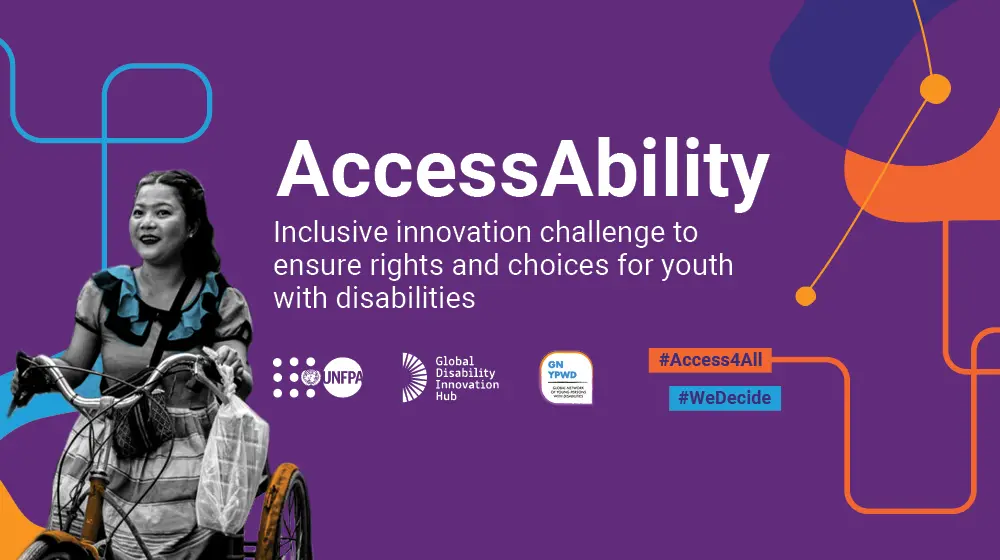The competition provides financial support to social enterprises that develop novel approaches to eradicating disparities and promoting empowerment among young people with disabilities.

The United Nations agency for sexual and reproductive health, UNFPA, announced the winners of the first AccessAbility innovation challenge: four groups that assist young people with impairments.
The competition, which is run in collaboration with the Global Network of Young Persons with Disabilities (GNYPWD) and the Global Disability Innovation Hub (GDI Hub), provides financial support to social enterprises that develop novel approaches to eradicating disparities and promoting empowerment among young people with disabilities.
Participants were encouraged to submit creative solutions to problems including gender-based violence and better access to SRH services as part of the competition. Additionally, it intended to support approaches for advancing digital inclusion and removing sociocultural obstacles.
229 submissions from 54 nations and six worldwide areas were assessed by the organizers. Based on their dedication to assisting young people with disabilities in accessing their sexual and reproductive health and rights, the judging panel chose four winning projects.
These groups focus on important issues that young people with disabilities experience all across the world, such as higher violence risks, access issues to services related to sexual and reproductive health, and difficulty fulfilling basic necessities.
These are the four winners who were revealed this week:
Technoprise Global
The project on conversational artificial intelligence (AI) for inclusive data collecting by Kenya’s Technoprise Global, which offers a cutting-edge, multilingual AI-powered platform painstakingly developed to facilitate courteous and vibrant dialogues, was chosen.
The platform’s primary function is to enable accurate and thorough data gathering about sexual and reproductive rights as well as medical requirements.
This program emerges as a beacon of individualized, user-centric information distribution, particularly intended to empower and educate young people living with disabilities. It has a devoted focus on closing the gap in effective data gathering within the disability community.
Alianta Infonet
Alianta Infonet, a Moldovan company, has been recognized for its podcast “Depasim Prejudecati” which empowers content creators with disabilities. The podcast raises awareness about the challenges faced by individuals with disabilities, including sexual and reproductive health issues and gender-based violence. The initiative aims to dispel misconceptions and promote inclusivity.
Access Able
A initiative by the Indian organization Access Able to enhance the accessibility of information for individuals with disabilities in low-resource environments was presented. The program makes use of interactive engagement tools like SMS and Interactive Voice Response to make it usable even in environments without cellphones, internet connection, or technological know-how.
Inclusive Reproductive Health Initiative (IRHI)
The Inclusive Reproductive Health Initiative in Cameroon is working on a menstrual cycle tracking device to dispel taboos and raise awareness about sexual health, especially for young women and girls with disabilities. The initiative also offers workshops and training to empower these individuals.
The four winners of the AccessAbility Innovation Challenge will receive seed funding grants, professional coaching, and will participate in a series of customized workshops to test and advance their innovations.